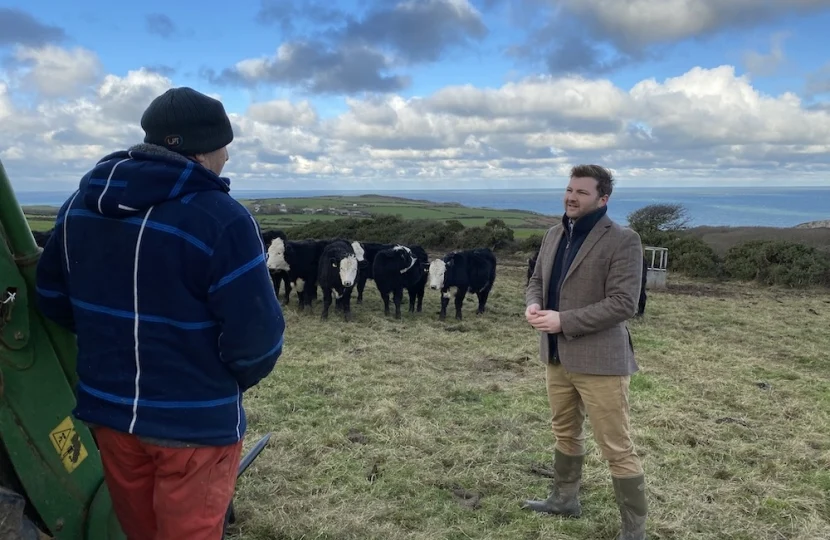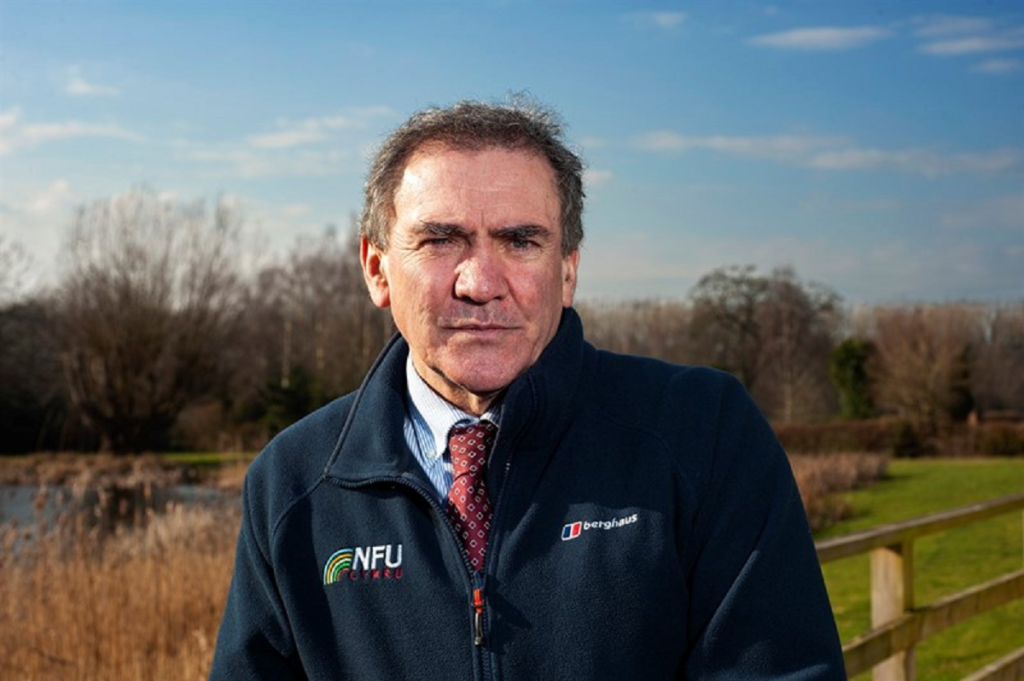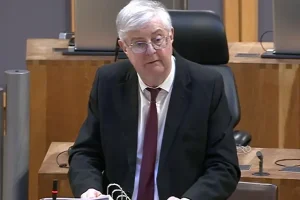FARMING organisations and Welsh opposition politicians reacted furiously to Rachel Reeves’s decision to abolish Agricultural Property Relief and Business Property Relief.
Labour’s DEFRA Secretary told the Financial Times in November 2023, “We have no intention of changing APR,” reinforcing the pledge to farmers across the UK. However, Wednesday’s Budget revealed a reversal on this promise, with the Chancellor announcing cuts to APR, potentially jeopardising thousands of family farms by increasing the Inheritance Tax burden.
APR provides critical relief on the transfer of agricultural property, allowing farming families to pass established food-producing businesses down to future generations.
With few Labour votes in agriculture and not many more among the asset-rich but cash-poor, the targets for Ms Reeves’s tax rises were obvious, especially after cutting the Winter Fuel Allowance for millions of pensioners.
CHANCELLOR PICKS OFF LOW-HANGING FRUIT
In a budget that increased taxes on businesses, it was almost inevitable that the new Chancellor would pick off other low-hanging fruit, including inheritance tax and the treatment of capital gains, to fill a claimed £40bn budget black hole.
The Chancellor will reform agricultural property relief and business property relief from 6 April 2026.

Up to 100% relief is currently available on qualifying business and agricultural assets. The 100% rate of relief will continue for the first £1 million of combined agricultural and business property; it will be 50% thereafter, an effective rate of 20%. The decision will bring the majority of Wales’ family farms into the scope of inheritance tax.
The government will also reduce the rate of business property relief available from 100% to 50% in all circumstances for shares designated as “not listed” on the markets of recognised stock exchanges. The change will affect incorporated farming businesses where ownership is divided between family members.
The reforms are expected to affect around 2,000 estates each year from 2026 to 2027. Unused allowance will not be transferable between spouses and civil partners, and certain arrangements for family trusts will be reformed to bring agricultural property held under a trust into taxation.
LABOUR POLITICIANS BREAK PROMISE TO FARMERS
Plaid’s Rural Affairs Spokesperson, Llyr Gruffydd MS, said: “Despite a pledge by the Defra Secretary of State last year that Labour ‘have no intention of changing Agricultural Property Relief’, this is exactly what they’ve done.
“Labour’s decision will severely disrupt the fragile financial state of the sector, leaving many farms having to sell off land in order to pay inheritance tax. This will have a devastating impact on a sector that’s already under huge financial pressure.
“Farmers are already expected to do more with less, from securing our food resilience to helping tackle the nature and climate emergencies. Doing so with the shadow of APR hanging over the farm makes it less likely they will be able to invest in meeting these challenges. That makes a total mockery of Labour’s mantra on investment and growth.”
Welsh Conservative Samuel Kurtz took Pembrokeshire’s Labour MP to task following the Chancellor’s announcement that the Labour Government will slash Agricultural Property Relief (APR)—a move the local MP had promised would not happen.

During the recent General Election, the then-Labour candidate publicly assured farmers at a husting event hosted by NFU Cymru, the Farmers’ Union of Wales, and the Pembrokeshire Young Farmers’ Club that APR would remain unchanged under a Labour Government.
Samuel Kurtz commented: “Labour’s Budget was a string of broken promises, but none will be as harmful to hardworking farmers as their cut to Agricultural Property Relief.
“For the Labour candidate to assure farmers at the husting that no changes would be made to APR—and then have Labour go back on that—shows that the party will say whatever it takes to win votes.
“Trust in politicians is at an all-time low, and this U-turns only helps feed that mistrust.
“Decisions like this threaten the future of family farms and undermine the promises made to the communities Labour claims to represent.”
Welsh Liberal Democrat Deputy Leader David Chadwick MP said: “This budget fails to offer an ambitious vision for Wales that would mark a long-term investment in its future. It punishes small businesses and will be a disaster for family farms.
“The Chancellor’s Family Farm Tax risks being a death knell for local farmers who have already faced attacks on their livelihoods by the Welsh Labour Government, who have shown time and time again they have no understanding of the rural economy or the work that goes into making sure the public have food on their plates.”
TAX HIKE WILL AFFECT FARMS’ VIABILITY
FUW President Ian Rickman said: “The FUW previously warned that changes to the agricultural property relief would affect family farms’ viability and consequently our rural communities. Changes will also have adverse consequential effects on related businesses and employment.
“The average size of farm holdings in Wales is around 120 acres – with even conservative estimates of land worth and buildings putting most farms at over £1 million in asset value.
“Agricultural Property Relief has long played an essential role in ensuring those who inherit agricultural holdings are not crippled by taxes when family farms are passed from one generation to the next.
“We await further details regarding APR and what the announcement today means for Welsh Government budgets. However, at a challenging period for farming in Wales, this news will add further uncertainty to farm businesses doing their utmost to produce food and enhance the environment.”
LAND DISPOSALS COULD BREAK UP RURAL ESTATES
TFA Chief Executive George Dunn warned that the tax changes could lead to a significant amount of land disposals from private estates, as we saw when death duty rates caused the breakup of rural estates in the middle of the 20th century.
“Such disposals would be immensely damaging to the letting sector of agriculture.
“It is hugely frustrating that the Chancellor did not choose to accept the TFA’s proposal to allow 100% inheritance tax relief to all land let for periods of 10+ years. That would have driven more sustainable farm tenancies, created a secure rural economy and protected traditional let estates whilst hitting those landlords who continued to take a short-term approach to the management of their land,” Mr Dunn concluded.
“MISGUIDED” REEVES THREATENS FARMING’S FUTURE
NFU Cymru President Aled Jones echoed Mr Rickman’s concerns in a statement describing the tax raid on agriculture as “misguided and ill-thought-out.”
Aled Jones said, “The changes announced today threaten not only our family farm structure and our tenanted sector but also our nation’s food security.
“The sort of restructuring we are likely to see in response to these changes is likely to mean there will be less land available for tenancies and contracts. Those are the lifeblood of small family farm businesses and a critical point of entry for young and first-time farmers.”

Aled Jones continued: “NFU Cymru has written to the Chancellor twice and all Welsh MPs on this issue. In addition, the union and its members have raised this extensively when we have met with politicians at party conferences as well as in their constituencies.
“This tax raid on agricultural property and businesses is misguided. It will seriously harm our family farms, rural communities, and our ability to produce affordable food for the nation while delivering negligible revenue to the Treasury in terms of overall government spending.
“Just because a family farm may look like a valuable asset on paper, that doesn’t mean those who work it are wealthy and able to meet a large tax bill.
“While there is typically a lot of capital involved in farm businesses, the return on the capital employed in farming, after taking into account a wage for the farmer, averages less than 1%. Such a rate of return is completely insufficient to pay an inheritance tax charge of 20% upon the generational transfer of that farm.
“Unless we see an urgent reconsideration by the UK Government, I am afraid we are going to see the breakup of multi-generational family farms.”















